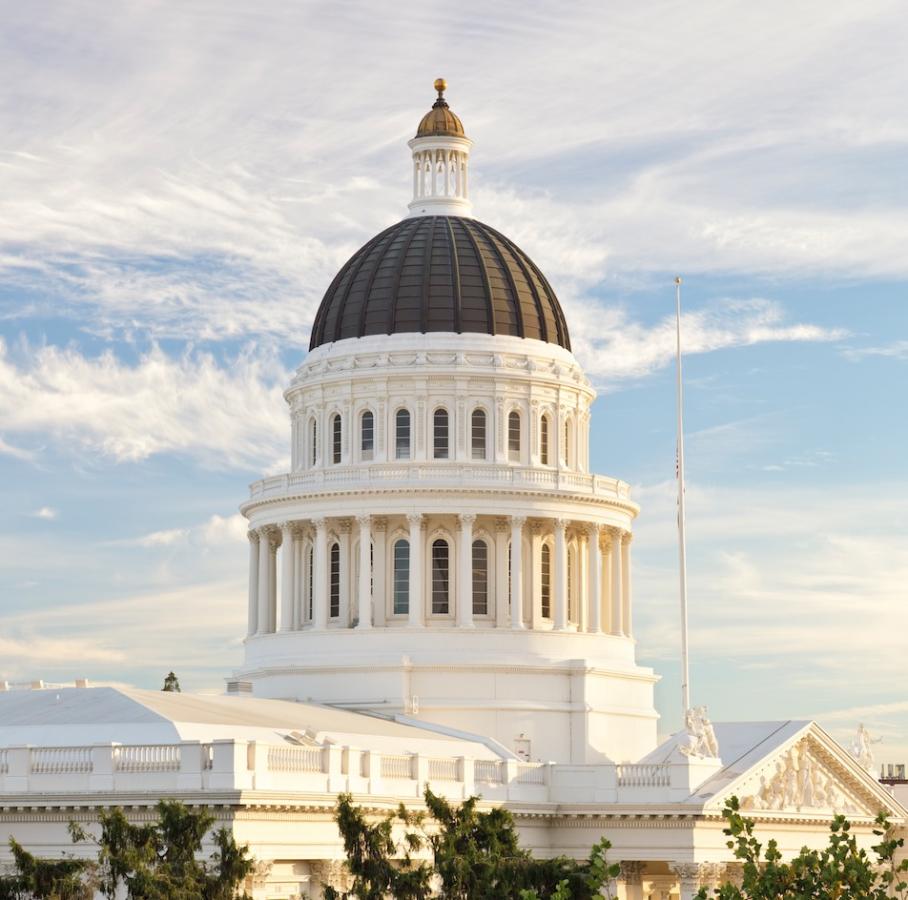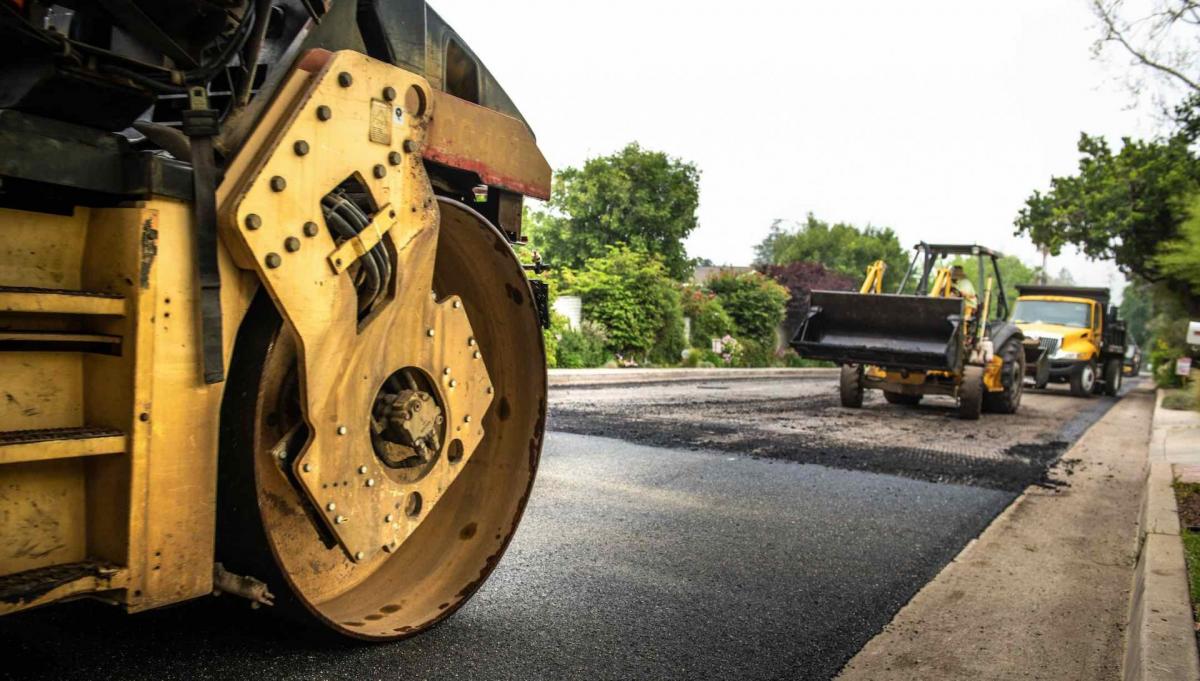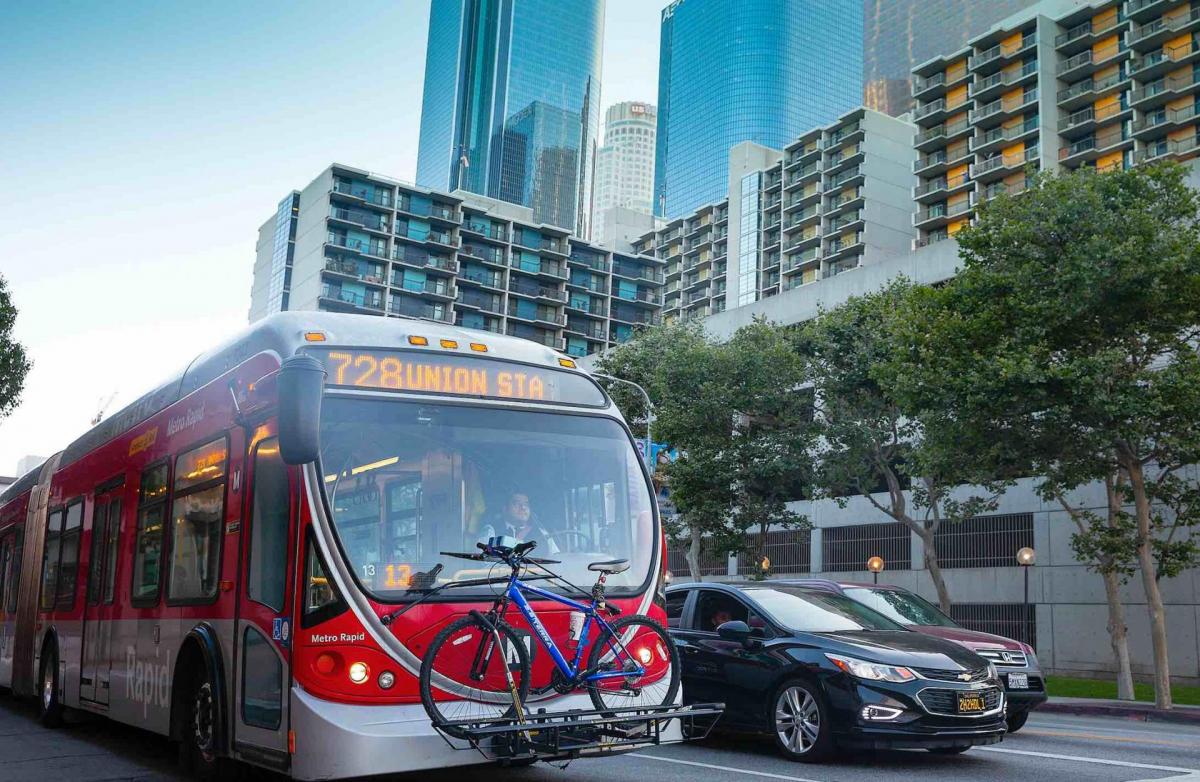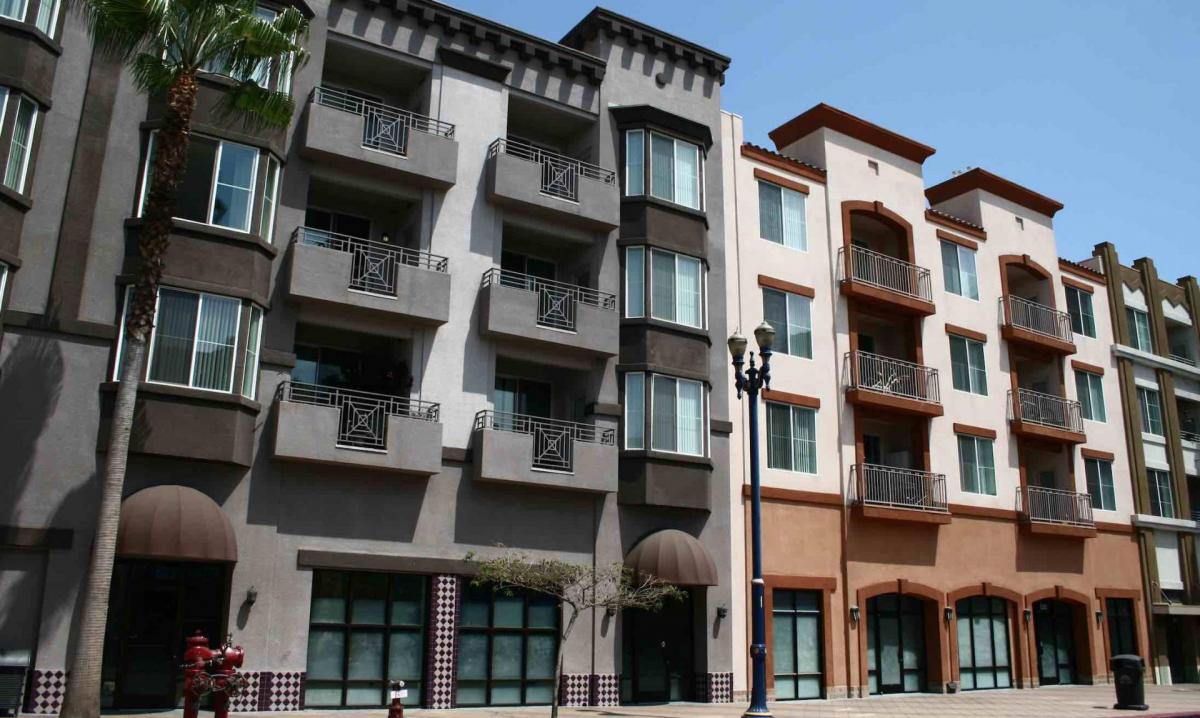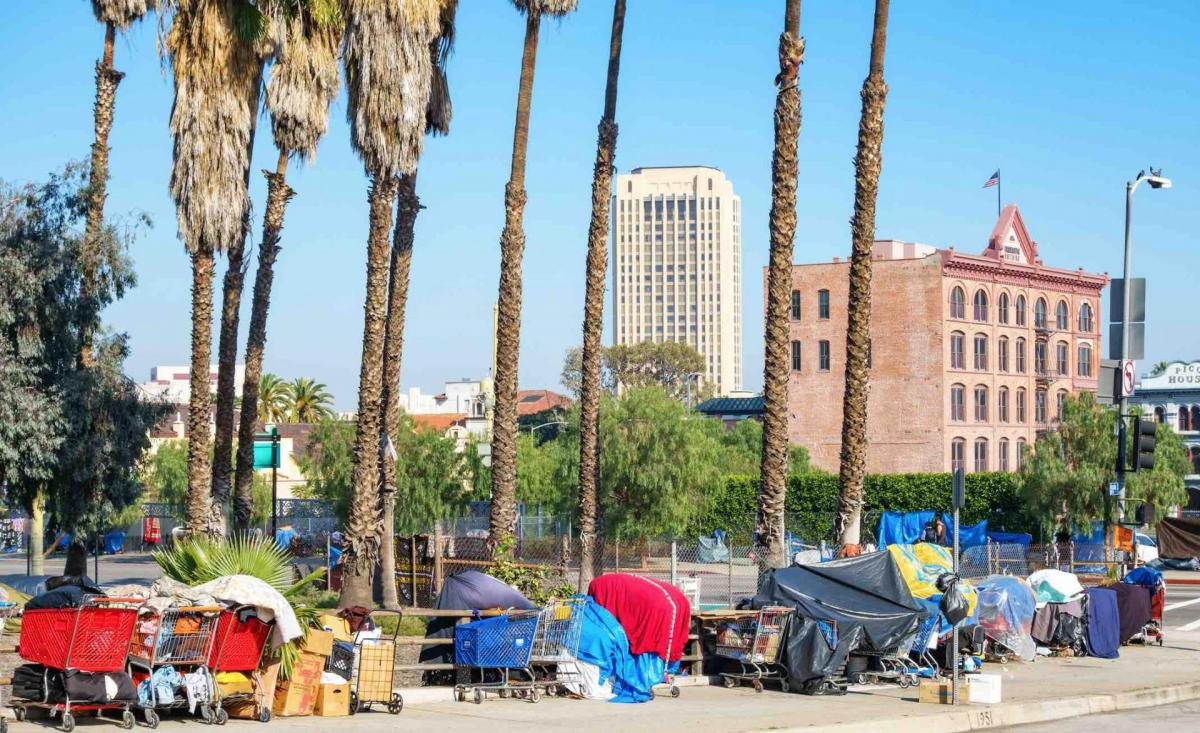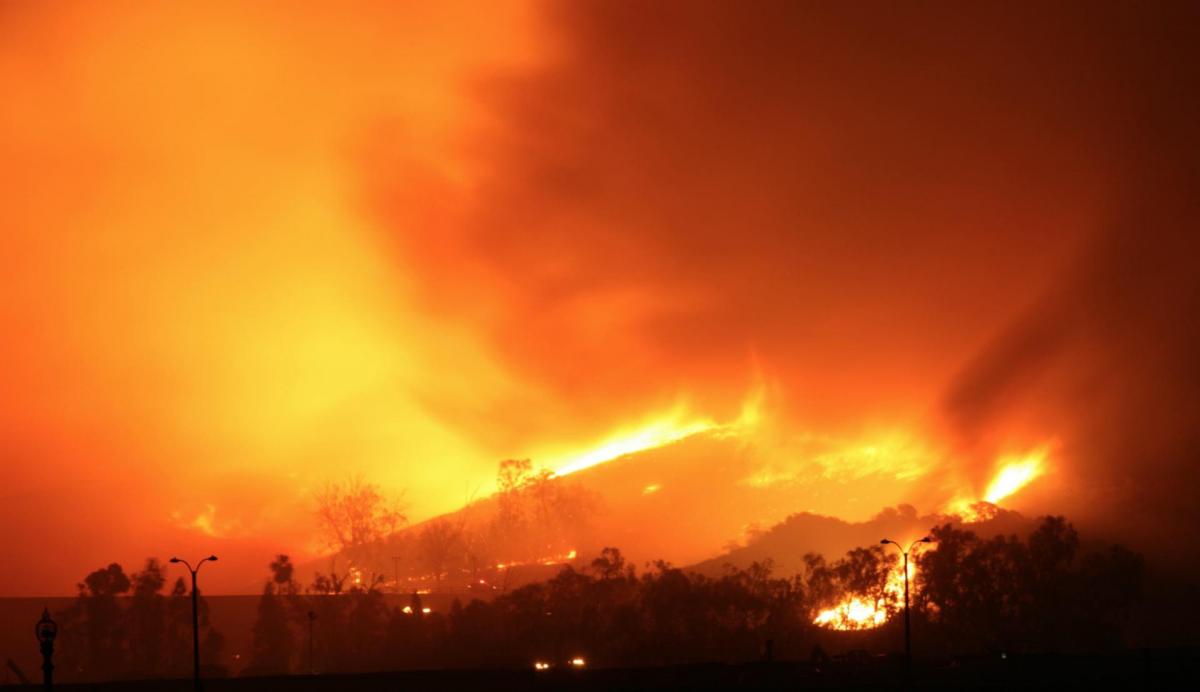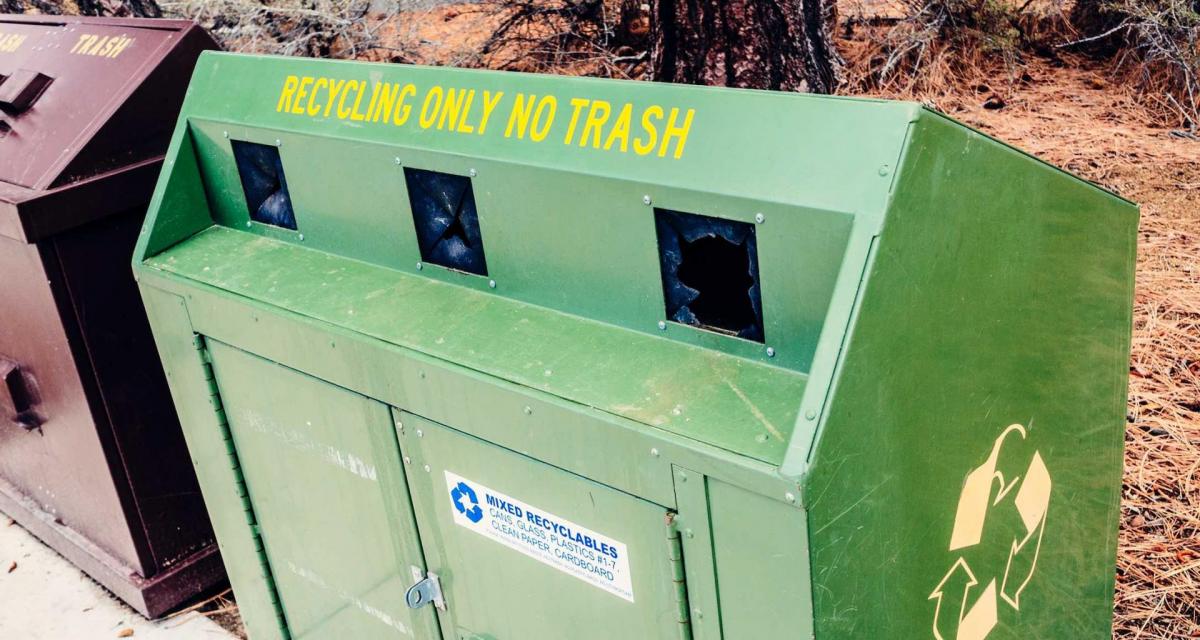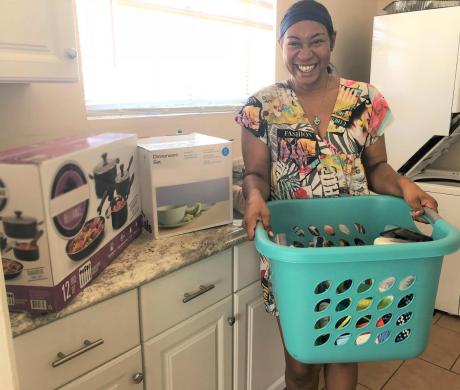2019 Legislative Year in Review
Dan Carrigg is former legislative director and deputy executive director of the League, now retired. The following League staff also contributed to this article: Jason Rhine, assistant legislative director; Rony Berdugo, legislative representative; Derek Dolfie, legislative representative; Charles Harvey, legislative representative; Bijan Mehryar, legislative representative; and Nick Romo, senior fiscal and policy analyst.
A progressive dawn illuminated the state Capitol at the opening of the 2019 legislative session. Throughout several days of inauguration events and festivities, supporters celebrated the election of Gavin Newsom to the Governor’s Office. It was a clean sweep: Democrats now occupied all constitutional offices and obtained historic supermajorities in the Legislature. With former Gov. Jerry Brown, the prudent four-term octogenarian, out of the way, California could now plunge progressively forward. “Courage for a change” was Gov. Newsom’s campaign theme.
Yet California’s complex challenges and governing realities meant utopia would have to wait. The Town of Paradise was in ashes after a utility-caused wildfire. Pacific Gas and Electric Company (PG&E) declared bankruptcy, requiring a major utility recovery and stabilization package to be crafted. Tension and Twitter battles with President Trump’s administration over immigration, the census, environmental policies and other issues became a distraction; by late September, the state had filed 60 lawsuits against the Trump administration. Despite Gov. Newsom’s goal to produce 3.5 million new units over six years, new housing production sputtered as developers balked at a weakening market with flattening rents and prices. And to the disappointment of legislators with plans for billions of dollars in new spending, Gov. Newsom’s budget was cautious. Like his predecessor, he avoided overcommitting and focused on repaying debts, building reserves and making one-time expenditures, including nearly $2.5 billion for affordable housing and homelessness. Overwhelming Democratic majorities failed to propel many progressive actions, with the most aggressive measures stalled or vetoed.
Despite multiple attacks on local zoning authority, the League and cities emerged surprisingly well. Efforts to link allocation of local transportation street and road funds to housing production were rejected, and the initially controversial housing trailer bill was later approved in workable form. Aggressive housing density bills stalled for the year; many others were amended or sidelined. On other fronts, the League worked to neutralize or stop many labor and elections bills of concern and supported a solution to rural clean water issues through a 10-year state funding plan instead of a water tax. Cities were again protected from liability for utility-caused wildfires through a repeal of inverse condemnation, and a compromise was reached to address law enforcement’s use of deadly force. Bills undermining local parking authority and scooter regulation also failed.
There was time for playing offense as well. The League sponsored legislation to provide cities additional resources and tools. SB 5 (Beall, McGuire, Portantino) would have restored a more robust property tax-based financing mechanism focused on building affordable housing and infill infrastructure. While the bill was passed by both the Senate and the Assembly, the governor vetoed SB 5 in the eleventh hour. ACA 1 (Aguiar-Curry) would allow the voters to lower the vote threshold for local general obligation bonds, sales taxes or parcel taxes that invest in affordable housing and a wide variety of infrastructure and is pending in the Assembly. AB 147 (Burke), which Gov. Newsom signed in April, implements the 2018 U.S. Supreme Court Wayfair decision that enables state and local agencies to collect millions of dollars in revenue from internet sales.
Legislative Leadership Styles and Governor’s Distractions Blunt Progressive Excess
Battles do not always favor the strong. On paper, progressive proposals should have disrupted the status quo. Gov. Newsom took office touting bold visions and calling for courage, and Democratic legislators increased their dominance to 61-to-19 in the Assembly and 29-to-11 in the Senate. Republicans were vanquished bystanders and lacked leverage to block actions; their emotions surfaced during bitter floor debates at the end of the session.
Yet despite their advantages, progress for the progressive Democratic agenda was muted. The governor reacted to many issues, described by one pundit as “swinging at every pitch.” Legislative dynamics also contributed. Senate pro Tem Toni Atkins (D-San Diego) and Assembly Speaker Anthony Rendon (D-Lakewood) have collaborative leadership styles that empower policy committee chairs and provide flexibility for their members on floor votes. This combination eroded the numerical partisan advantage and resulted in the most aggressive measures being watered down or stalled.
Governor’s Initial Budget Contained Housing Funding and Threats to Local Government
The excitement was palpable as Gov. Newsom unveiled his first budget proposal. Intense media interest caused the press conference to be moved to a larger room. With state coffers swelling and many ambitious proposals discussed on the campaign trail, reporters expected something new and different. But after the governor occupied the stage for nearly two hours, giving detailed explanations and displaying his command of state policy and finance, those who anticipated grandiose spending and new programs from the $20 billion surplus were disappointed.
Gov. Newsom mirrored his predecessor’s cautious and prudent approach. He focused on building reserves, repaying debts, reducing pension obligations, avoiding establishing or expanding ongoing programs and offering a series of one-time expenditures. Even ongoing proposals reflected fiscal caution. At one point he held a press conference to announce a sales tax exemption for diapers and menstrual products that would be in effect for only two years.
The historic state budget investment in affordable housing and homelessness, however, was impressive. The budget included over $2 billion for local planning grants, housing-related infrastructure, homelessness services, mixed-income housing loan programs and expanding the state’s tax credit program.
But some negatives outweighed these positives for local authority. The governor’s most aggressive threats targeted cities — including tying the allocation of local transportation funds to housing production. When the housing trailer bill language was released, the details were even more aggressive. The bill empowered the Department of Housing and Community Development (HCD) to:
- Unilaterally impose on communities statewide zoning
requirements for hundreds of thousands of new
housing units; - Authorize regions to monitor city progress on zoning; and
- Penalize cities for noncompliance by taking local transportation funds.
And there was more. Gov. Newsom revealed that he would consider limitations on development impact fees. Rather than reinstating local redevelopment authority, he preferred making one-time expenditures and merging tax incentives with the new federal Opportunity Zone program and enhanced infrastructure financing districts.
League Works With Transportation Coalition to Get Links to SB 1 Funding Off the Table
The League worked for over a decade building the case for increased transportation funding to address declining street and road conditions. Part of that effort included working to develop and support the passage of SB 1 (Beall) in 2017 and, in 2018, defeat Proposition 6, which sought to repeal it. Consequently, the League was determined to fight any proposals that undermined this funding stream for cities. The League was the first organization to send an “oppose” letter on AB 1568 (McCarty), a bill to shift local street and road funds from cities on the basis of housing production. In addition, the League helped organize a coalition of transportation stakeholders to oppose the bill. After an aggressive lobbying effort, the bill stalled in the first committee without a hearing. In a parallel effort, the League worked with transportation stakeholders to oppose the governor’s similar budget proposal. Fortunately, legislators were in no mood for this. Many had cast the tough votes to pass SB 1, and even those who had opposed the bill did not want to break faith with the voters by allocating the revenues differently than had been represented to the public.
Two-Phase Negotiations Over Housing Trailer Bill’s Planning Elements
Throughout the spring, the League engaged in extensive negotiations with administration representatives on the housing trailer bill. The negotiations occurred in two phases over many months.
Initially, Gov. Newsom proposed allocating $750 million to local agencies, with $250 million for enhanced housing-related planning and $500 million as rewards for locals achieving various “milestones.”
In the first phase, the League focused primarily on the policy and planning elements. It was important that any new program be workable for cities and avoid establishing unrealistic and divisive conditions. As a result of these negotiations, the language was largely rewritten and eliminated the proposal for HCD to dictate additional zoning for hundreds of thousands of additional units. The League also collaborated with the California Association of Councils of Government (CALCOG) in rewriting the local planning grant language to work both for cities and regions.
While negotiations addressed planning-related issues, challenges emerged over designing the metrics to allocate the $500 million in rewards. The League proposed a tiered system of per-unit financial awards to local agencies, with enhanced funding for higher density, transit-oriented or affordable units. This system could have worked; however, the administration and Legislature ultimately opted to use these funds for infill infrastructure grants, which the League also supported.
Last-minute changes triggered a second phase. Just before the budget deadline, the administration unveiled trailer bill language containing an aggressive packet of proposed fines, penalties and state receivership for jurisdictions lacking HCD housing element approvals. The League fought back against these punitive elements, working with legislative staff. Preserving due process in a court before aggressive actions could be taken against a city remained a critical League objective. After several days of intense negotiations, the League succeeded in revising the language to remove the most objectionable elements and ensure due process for cities.
Finally, on July 5, the Legislature passed AB 101, the housing budget trailer bill, reflecting the compromise and negotiations that took place over seven months between Gov. Newsom, the Legislature and stakeholders. The bill:
- Provides $2.5 billion to address the housing and homelessness crisis;
- Creates incentives to increase housing production;
- Establishes a process for a court to determine that a city or county has complied with housing element law; and
- Imposes penalties, only as a last resort, if cities and counties disregard the direction of a court and continue not to fulfill their responsibilities under housing element law.
Efforts to Create New Infill/Affordable Housing Development Tools: SB 5 and ACA 1
One of the League’s 2019 strategic priorities was “Provide Cities Additional Funding and Tools and Preserve Local Authority to Address Housing Production, Affordability and Homelessness Challenges.” In pursuit of this priority, the League worked proactively with four key policy committee chairs to sponsor and support legislation that proposed expanding options for cities to finance affordable housing and infill development. The League recognized these four legislators with the 2019 League Distinguished Legislative Leadership Award for their efforts:
- Sen. Jim Beall (D-San José), chair, Senate Transportation Committee;
- Sen. Mike McGuire (D-Healdsburg), chair, Senate Governance and Finance Committee;
- Sen. Anthony Portantino (D-La Cañada Flintridge), chair, Senate Appropriations Committee; and
- Assembly Member Cecilia Aguiar-Curry (D-Winters), chair, Assembly Local Government Committee.
SB 5 was the most substantive and robust economic development tool to be proposed since the elimination of redevelopment. The bill would have created a local-state partnership to provide up to $2 billion annually to fund affordable housing, infrastructure and economic development projects that also supported state policies to reduce greenhouse gas emissions, expand transit-oriented development, address poverty and revitalize neighborhoods. It took tremendous legislative leadership by Sens. Jim Beall, Mike McGuire and Anthony Portantino to get SB 5 to the governor’s desk. Unfortunately, Gov. Newsom vetoed SB 5.
ACA 1, authored by Assembly Member Cecilia Aguiar-Curry, proposes giving state voters the opportunity to approve local investments in affordable housing and infill infrastructure with a 55 percent vote. The author and the League worked extensively to build support for this measure, collaborating with a broad coalition of co-authors and organizations. Unfortunately, the measure fell just short of the required two-thirds vote on the Assembly floor but remains eligible to move in 2020. The League also appreciates Assembly Member Aguiar-Curry’s work with the League as chair of the Assembly Local Government Committee to co-author SB 5.
Additional Resources Secured to Address Homelessness
Gov. Newsom focused on homelessness, augmenting resources approved by Gov. Brown in 2018, and allocated $650 million to build emergency shelters, navigation centers and supportive housing. His budget included additional funding for the Whole Person Care Pilots programs, which coordinate health, behavioral health (including mental health and substance use disorder services) and social services, and housing for the mentally ill under the No Place Like Home program. Accompanying trailer bill language streamlined environmental review for homeless shelters, navigation centers and new supportive housing units and allowed emergency shelters to be located in state highways’ right of way beneath overpasses.
Major Efforts to Override Local Zoning Stall; Other Measures Signed
The biggest legislative threats to local authority came on housing and land use. The governor’s production goal of 3.5 million housing units by 2025 — despite the state never having approached that level of construction in its history — opened the door for more radical legislative proposals. Concepts included banning density reductions in all residential zoning for 10 years, allowing all existing single-family homes to be converted to rental fourplexes, letting developers pick maximum densities of their buildings and eliminating single-family zoning.
Developer-supporting activists and sympathetic reporters applauded such proposals on social media. For some legislators, the focus on cities and zoning offered a softer political target. It avoided angering developers, environmentalists, labor representatives and other influential stakeholders. Also skipped were the challenges of dealing with more complex issues affecting housing demand, such as declining middle-class wages; lingering economic effects of the foreclosure crisis; contributions of state environmental, water and energy regulations to housing costs; and mountains of student debt diminishing the ability of potential homebuyers to save for down payments.
The League proceeded carefully in this charged environment. It was impossible to fight on all fronts at once. Instead, the League timed its engagement and worked on selected issues. By mid-session, cooler legislative heads prevailed and the most aggressive proposals stalled or were addressed by amendments.
The League supported proposals affecting misconduct by landlords. SB 329 (Mitchell) prohibits landlords from discriminating against tenants who rely upon housing assistance paid directly to landlords, such as Section 8 vouchers, and AB 1110 (Friedman) lengthens the time for tenants to receive notice before specified rent increases. The governor signed both bills.
Proposals opposed by the League but signed into law included:
- SB 330 (Skinner), which prohibits a city from imposing any fee — except California Environmental Quality Act (CEQA)-related fees — after the submittal of a “preliminary” application. The concern is that this would essentially ban project-specific fees because these fees cannot be determined until a city fully analyzes the project. Given this omission, more local projects would likely require full environmental impact reports (EIRs) to ensure project-specific impacts are addressed; and
- AB 1763 (Chiu), which allows 100 percent of affordable housing within one-half mile of a major transit stop to be up to three stories higher than other buildings with no more than one-half parking spot per unit. Such out-of-scale structures could further exacerbate community resistance to affordable housing and would undermine community-based housing plans.
Three additional bills on accessory dwelling units (ADUs) were also signed into law. While all were well-intended by the authors, these bills continue compounding the confusion over this law (which has become a moving target):
- SB 13 (Wieckowski) prohibits local jurisdictions from imposing impact fees on ADUs of less than 750 square feet and limits charges on ADUs over 750 square feet to 25 percent of fees for a new single-family dwelling on the same lot;
- AB 68 (Ting) amends the statewide standards that apply to locally adopted ordinances concerning ADUs. Changes include prohibiting minimum lot size requirements, requiring at least 850 square feet per ADU and requiring approval within 60 days; and
- AB 881 (Bloom) prohibits a local jurisdiction from requiring that a property owner live in the main house or one of the accessory structures, requires local agencies to ministerially approve ADUs on lots with residential or mixed-use zones and adds a definition of “public transit” to mean a location including but not limited to a bus stop or train station where the public may access buses, trains, subways and other forms of transportation that charge set fares, run on fixed routes and are available to the public.
Effort to Preempt Local Parking Authority Stalls
The League led the opposition effort to AB 516 (Chiu), a bill sponsored by legal aid advocates proposing to eliminate the ability of cities and law enforcement to adequately enforce state and federal vehicle violations. The bill would have prohibited immobilizing or towing a vehicle with more than five unpaid parking tickets or traffic violations and extended traditional 72-hour violations by an additional five business days. The League worked to get the bill pulled off consent on the Assembly floor and persuaded 31 members to vote “no” or abstain, then continued to lobby with a coalition of cities against the bill in the Senate. The League thanks Sen. Portantino for recognizing the bill’s flaws and holding it in the Senate Appropriations Committee.
Statewide Disaster and Emergency Response
Gov. Newsom and the Legislature deserve thanks for their unwavering focus on helping communities, including the Town of Paradise, recover from recent wildfires. Paradise received emergency cash assistance to maintain operations, followed by a broader budget package that assists all cities and counties impacted by recent disasters, including backfilling lost property taxes. Despite political differences, the governor and President Trump also worked together to ensure these communities received federal resources and support. The recovery of disaster-affected communities will take years, but the commitment and collaboration by all levels of government to assist these communities is commendable.
To address future vulnerabilities, the budget included $300 million for disaster preparedness, emergency response, disaster-related planning, improving communications, purchasing additional equipment and pre-positioning first responder resources. The governor also signed two League-supported emergency response bills. SB 209 (Dodd) establishes the Wildfire Forecast and Threat Intelligence Integration Center as the integrated central organizing hub for wildfire forecasting, weather information and threat intelligence gathering. SB 670 (McGuire) requires telecommunications service providers to submit a specified outage notification to the Office of Emergency Services (OES) when a telecommunications outage impacting 911 service and emergency notifications occurs.
Other League-supported legislation included AB 291 (Chu), a bill that proposed $500 million in ongoing funds to support local emergency planning but did not pass, and SB 45 (Allen), a proposed $4.3 billion bond for wildfire restoration, drought mitigation and water projects. Work on SB 45 will continue in 2020.
Tax Conformance With Opportunity Zones Stalls; Cleanup Needed on Changes to EIFDs
The governor’s budget focused on economic development in two areas: providing state tax conformity for investments in affordable housing or green technology in new federal opportunity zones and removing the 55 percent vote requirement for bond issuance by Enhanced Infrastructure Financing Districts (EIFDs).
Gov. Newsom’s Opportunity Zone proposal ran into legislative concerns over the details and costs and was not adopted. On EIFDs, Sen. Beall, who authored the original EIFD law, carried SB 128 to remove the vote requirement, but that proposal stalled and the bill was used for another purpose. With several days remaining in the session, AB 116 (Ting) removed the vote requirement, but imposed a lengthy public notice and protest process attached to EIFD formation. The League and the California Association for Local Economic Development raised concerns when the bill was on the governor’s desk. However, Gov. Newsom signed the measure.
Utility Wildfire Liability Package Adopted
Prior to the summer recess, Gov. Newsom and the Legislature enacted a utility wildfire liability package in AB 1054 (Holden, Burke, Mayes) and AB 111, a budget trailer bill. Pressure to pass this legislation arose with the bankruptcy of PG&E, which faced billions of dollars in claims for wildfires started by faulty equipment and poor maintenance — along with concerns over future massive fiscal exposure from other utilities and their shareholders.
Over half of the $40 million insurance fund created by these bills is seeded by a state loan, with remaining contributions from utilities. Access to the fund is available only to utilities receiving California Public Utilities Commission (after 2021, its name changes to Natural Resources Agency) certification for their wildfire mitigation plans. To obtain a safety certification, an electrical corporation must establish an executive incentive compensation plan, approved by the Wildfire Division, linked to safety performance metrics that include tying 100 percent of such compensation to safety performance.
Utilities obtaining this certification receive protection from future liability for wildfires, and other changes could make it easier to shift costs to ratepayers even if utilities are responsible for causing a fire. Previously a third party had to demonstrate that a utility’s action was not reasonable, but AB 1054 increased the threshold to one where “serious doubt” must be established that an electrical corporation’s conduct was not reasonable. A utility then has the burden of dispelling that doubt in proving its conduct was reasonable. It will be several years before the changes enacted in this legislation can be adequately evaluated.
Water Tax Battles End With Safe and Affordable Drinking Water Fund
Many rural areas lack safe water supplies but residents are too poor to pay for upgrades, so the legislative debate focuses on how to pay for it. The League worked with the Association of California Water Agencies (ACWA) and the California Municipal Utilities Association (CMUA) to oppose various water tax proposals, which would have levied a tax on all water users with proceeds transferred to a state agency for allocation. This approach was flawed — taxing urban water users with no visible benefit would undermine support for paying for improvements to urban systems.
After extensive discussions, participants agreed on an alternative financing plan ultimately included in SB 200 (Monning). The bill establishes a 10-year state commitment of up to $130 million from the Greenhouse Gas Reduction Fund with a backstop guarantee from the General Fund. This solution avoids the problems associated with a water tax while still addressing the goal of helping provide an adequate and affordable supply of safe drinking water to communities statewide that need it. The League applauds the leadership of SB 200’s authors, Senate and Assembly leaders and the governor for finding a workable solution.
Sales Tax Collections Under Wayfair and Other Local Revenue Matters
The U.S. Supreme Court’s ruling in Wayfair v. South Dakota in June 2018 provides states more authority to require out-of-state sellers to collect sales and use tax. AB 147 (Burke), the implementing legislation supported by the League, clarifies the economic nexus thresholds to allow state and local agencies to collect a legislative estimated $400 million per year from out-of-state retailers and marketplace facilitators. This estimate may be low; actual revenue from this measure could be higher.
Reflecting its recently refined policy on sales taxes, the League supported SB 531 (Glazer), which contains a recommendation adopted by a 2018 League task force to prohibit future sales tax agreements between local agencies and retailers with a warehouse, sales office or fulfillment center that results in a shift of sales taxes from other jurisdictions. Although SB 531 passed in both the Assembly and the Senate, Gov. Newsom vetoed the bill. In a related measure, the League opposed and requested a veto on AB 485 (Medina), which imposes an onerous list of conditions on economic incentives associated with siting a warehouse; however, Gov. Newsom signed AB 485 into law.
Cities also benefit from League-supported AB 1637 (Smith), signed by the governor, which authorizes the state controller to automatically allocate to a state or local agency any unclaimed property in that agency’s name received as part of the controller’s unclaimed property database.
Responding to Local Recycling Challenges
Local governments have long been responsible for ensuring that California achieves its recycling and waste management goals. California’s solid waste and recycling industries, however, are facing a series of critical issues. Materials including plastics and paper are piling up at local waste facilities throughout the state with nowhere to go. First among these challenges are China’s changes to its trade import policies. These changes, collectively referred to by China as the “National Sword,” have significantly disrupted California’s recycling industry by restricting foreign imports to China of recyclable materials and increasing the requirements for reduced contamination levels in recycling streams. This has increased costs to local governments, caused slowdowns in waste processing of other materials and put public health at risk.
In response, the League worked with a coalition of local government and environmental organizations to support the California Circular Economy and Plastic Pollution Reduction Act, contained in two identical measures SB 54 (Allen) and AB 1080 (Gonzalez). These measures would help California transition from single-use plastic containers to reusable or compostable packaging. In addition, the measures promote the development of in-state manufacturing that uses recycled material to reduce the waste associated with single-use packaging and products by 75 percent by 2030. These measures stalled in the final hours of the Legislative session; efforts to pass them will resume in January.
Organic waste materials present another major challenge. Local agencies face increasing organic recycling requirements, but the state lacks adequate infrastructure and markets. The League, along with a large coalition of environmental, waste industry and local government associations, advocated for $100 million for organic waste diversion programs and supported SB 667 (Hueso), which proposed a five-year investment strategy. Unfortunately, SB 667 stalled, but $25 million was allocated in the budget. AB 1583 (Eggman), which extends an existing sales tax exemption program benefiting investments in recycling infrastructure for five more years, was signed by the governor.
Public Safety: Use of Force, 201 Rights, Drones and Cannabis
A two-year long debate in the Legislature over police use of force reached a conclusion with the governor’s signature on AB 392 (Weber) and SB 230 (Caballero). Initially, these bills took differing approaches. AB 392 proposed altering the long-established legal standard used to evaluate the appropriateness of law enforcement’s actions, while SB 230 approached the matter through increased training. The League and law enforcement organizations supported SB 230 and opposed AB 392. Further negotiations resulted in an agreement that removed the most objectionable elements of AB 392, and Gov. Newsom signed both bills.
SB 438 (Hertzberg) addressed another longstanding dispute over local “201 rights,” affecting local emergency service delivery. The bill prohibits a public agency from delegating, assigning or contracting for 911 emergency call processing or notification duties regarding the dispatch of emergency response resources unless the delegation or assignment is to — or the contract is with — another public agency or made pursuant to a joint powers agreement or cooperative agreement. The governor signed the bill.
League-sponsored AB 1190 (Irwin), which establishes a framework for local drone regulation, moved to the Senate where three policy committees have requested hearings in 2020.
The most contentious cannabis proposal was AB 1356 (Ting), which required local agencies to issue a minimum ratio of cannabis licenses to existing liquor licenses. The bill stalled after the League strongly opposed this measure due to its clear violation of Prop. 64. Two measures supported by the League to improve tracking and tracing of cannabis, AB 1288 (Cooley) and SB 658 (Bradford), also stalled. A budget trailer bill was adopted extending laws related to provisional licenses and providing support for community equity efforts.
League’s Efforts to Assist Annexations and Incorporations Continue to 2020
Sometimes it takes a long time to clean up a mess. In 2011, a budget trailer bill — SB 89 (Chapter 35, Statutes of 2011) — was rushed through the legislative process with no public hearings and swept away over $200 million annually in vehicle license fee (VLF) revenues from cities. This action severely harmed recently incorporated cities and cities that had annexed inhabited territory.
Since then, the League sponsored numerous bills to right this wrong and re-establish good land-use policy going forward. Unfortunately, Gov. Brown resisted most of these efforts. A partial success occurred, however, in 2017 with the passage of SB 130, a budget trailer bill. With language drafted by the League, SB 130 assisted four recently incorporated cities in Riverside County that were harmed by the loss of up to 40 percent of General Fund revenue. Although SB 130 did not resolve issues associated with annexations or future incorporations, it provides the legislative template to also address these issues.
With a new governor at the helm in 2019, the League sponsored two bills: AB 213 (Reyes) and AB 818 (Cooley and Quirk). AB 213 would restore funding to approximately 140 cities that had annexed inhabited territory in reliance on previous financial incentives and then suffered when the budget process swept away those funds through SB 89. AB 818 would restore fiscal support for new incorporations — otherwise no new incorporations will occur in the state. Both bills were held in the Legislature, and educational efforts continue with the administration on the policy benefits of these bills.
Pensions, Labor and Employee Relations
The League, along with other organizations representing public and private employers, played defense in 2019 against several aggressive labor-sponsored measures. With Gov. Brown (who had demonstrated his willingness to contain costs and veto measures) no longer in office, labor groups reintroduced former proposals that had been vetoed in the past. Some proposals expanded presumptions under workers’ compensation, others limited contracting or required the California Public Employees’ Retirement System (CalPERS) to divest from various investments.
After long battles in the Legislature, the most onerous and costly bills failed to reach the governor’s desk. For those that did, Gov. Newsom appeared to draw some lines. For instance, in the final hours of the legislative session, he sent SB 266 (Leyva), which proposed that cities pay out of their General Funds to retirees for compensation that CalPERS determined was not allowed, back to the Legislature. This is an encouraging sign.
In February, the California Supreme Court issued its much-anticipated decision in Cal Fire, which clarified that the purchase of “air time” was not a vested right. While the court avoided making wider pronouncements on vested rights under the “California Rule,” the court has several cases on its docket where broader interpretations could occur. The governor is obviously aware of pension challenges, because he dedicated over $4 billion in the budget to mitigate growing state liabilities.
Outlook for 2020
With a contentious presidential primary and election, controversial ballot measures, deteriorating relations with Washington, D.C., and continued pressure on land-use and housing issues, 2020 is expected to be a year of significant political tension.
But if stakeholders take the right approach, opportunities may arise for collaborative solutions on major issues by avoiding divisive or partisan approaches and seeking leadership from Gov. Newsom, the Legislature and local governments.
In such discussions, city officials must continue to remind all stakeholders of the core values and benefits of local democracy for the residents whom they serve. As a nonpartisan organization representing the collective voices of all cities, the League remains the conduit to communicate on major policy issues affecting cities and advance the interests of cities and their residents.
Onward to a better future for California cities.
Related Resources
Wayfair Decision Means More Sales and Use Tax Revenues for Cities
Partnering With the State to Support Affordable Housing Development: Get Ready
Connecting the Dots on Emergency Preparedness, Recovery and Resilience
Photo Credit: PictureLake (state Capitol); spiderplay (road work); stellalevi (bus); rodeno (apartment complex); benedek (homeless); strickke, (apartments); plasticsteak1 (wildfire); MCCAIG (police car); Charday Penn (water faucet); alexsl (keyboard); lucentius (recycle bin); Joe Seer/Shutterstock.com (cannabis)

